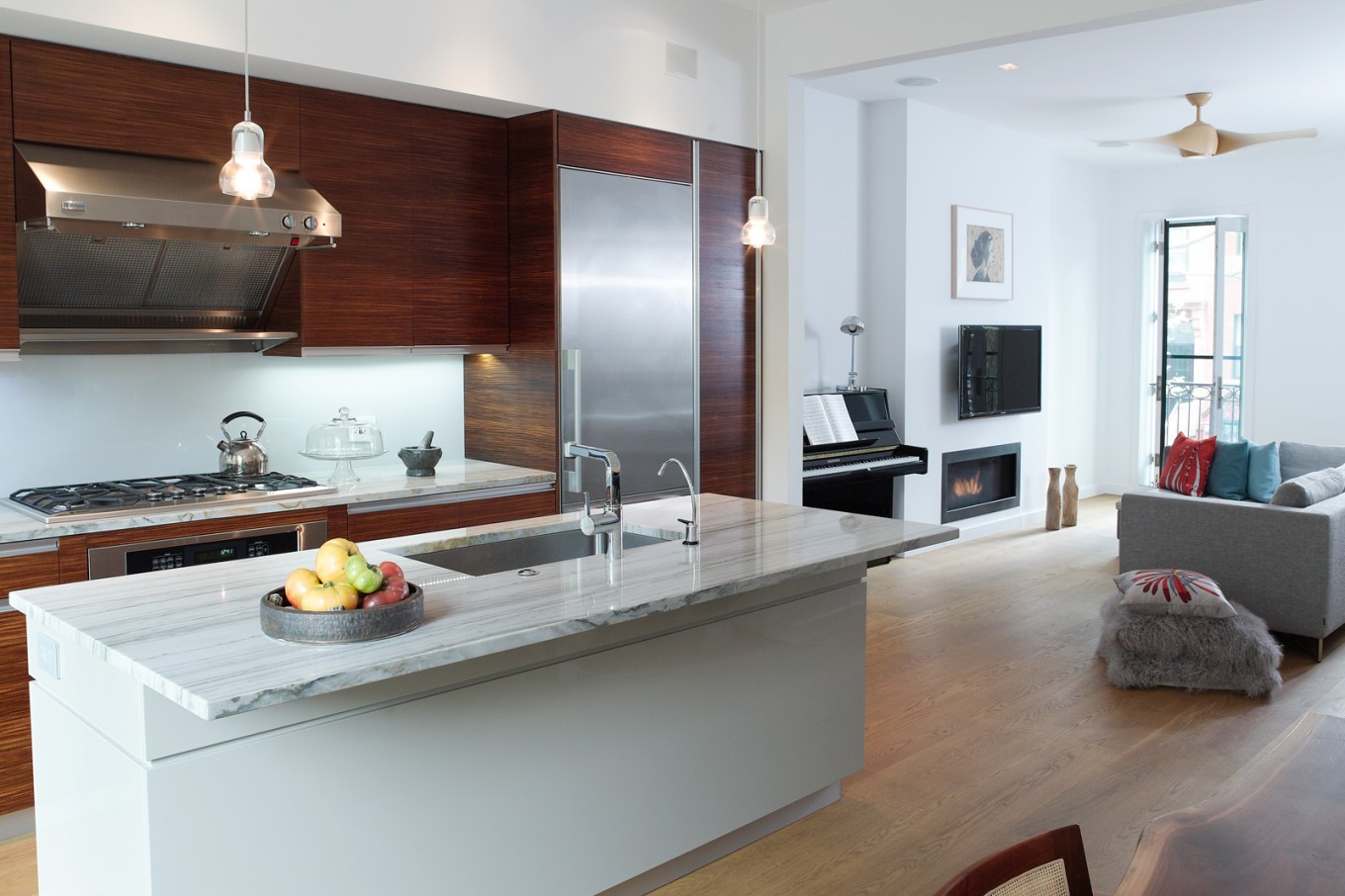When Rosa Lim and her husband, Scott Evans, first laid eyes on their Brooklyn, N.Y., townhouse back in 2009, the interior hadn’t been updated in half a century. “It was in such bad shape that I couldn’t see any potential,” Lim recalls. “But Scott said, ‘Think of it as a box. You can do anything with a box.'”
After a yearlong gut renovation, the couple’s “box” is now an elegant and inviting home.
Sharing a Budget and Vision
More important, their marriage is intact. Change can be stressful even in the best of circumstances, but add money to the mix and it’s easy to see why home remodels often bring out the worst in people. It can be a challenge for couples that undertake big projects to come out unscathed.
In Lim and Evans’ case, a few factors worked in their favor. The husband and wife share a similar design sensibility, and they had already survived a kitchen and bath renovation in a previous apartment. Could part of their success story also be that Lim is a psychologist specializing in couples therapy? Without a doubt.
One of the most common areas of conflict that couples come to me about is money, so Scott and I were vigilant about staying within our budget.
Rosa Lim
“One of the most common areas of conflict that couples come to me about is money, so Scott and I were vigilant about staying within our budget,” says Lim. “We splurged where necessary, especially on anything structural, but researched where we could find fixtures and details for the best prices.”
Still, when two different people are collaborating on a plan for their shared space, there are bound to be points of contention. “I insisted on a powder room on the first floor,” Lim acknowledges with a laugh. “To this day, Scott says he wants to get rid of it.”
Even before the remodeling phase, when you’re looking for homes, you and your partner need to be on the same page when it comes to cost and vision. “That’s one of the first things I ask about when I meet buyers so I can [help] determine if they’re better suited to a house that needs work or one that is move-in ready,” says Sheryl Grider Whitehurst, managing broker for RE/MAX Traders Unlimited in Peoria, Ill., and a regional vice president of the NATIONAL ASSOCIATION OF REALTORS®.
Related: 5 Secrets Your Contractor Doesn’t Want You to Know
Talking Through Trade-Offs
Beyond sorting out budget and style, the most important keys to surviving a major home remodel are compromise and communication, reports psychologist Larina Kase, co-author of “The Confident Speaker” and a renovation veteran herself.
“I was lucky because my husband let me make most of the decisions when it came to wallpaper [in our bathroom], paint colors, and lighting,” says Kase.
“But there were areas where we compromised,” says Kase. “Finding space for his plethora of sports memorabilia and original music posters was challenging, but we did it!”
Kase says to think of the big picture before jumping right into the smaller details. “Discuss your overall goals for the project,” she says. “Not only what you want the space to look like and what budget you can afford, but also what lifestyle changes might be needed while the work is being done to accommodate downtime to manage stress.”
Once a renovation is underway, don’t lose sight of your partner’s perspective. “If you’re the one who tends to make most of the style choices, pick a few paint colors or tile patterns that you like and ask the other person to make the final decision,” Lim recommends.
Similarly, if your partner has done most of the legwork, preface any suggestion or request by first recognizing those efforts. “Studies actually show that people are better able to accept constructive criticism when it’s combined with a compliment,” says Lim.
And, of course, the timing of any renovation-related discussion is crucial to its harmonious outcome. “Don’t talk about the house at the end of a long day,” Lim counsels. “If both of you are very busy, schedule a time when you can sit down and go over the project’s progress or any concerns you might have in a relaxed setting.”
Whether you’re currently planning a home remodel or have already begun one, there will be times ahead when the process seems like it may never end. In those moments, it’s important to step back and remember why you started the project in the first place.
“Envision how you’ll enjoy the space once the work is done or plan a big reveal party for your friends and family,” says Kase. “When we feel at peace in our homes, that feeling translates to other areas of our lives.”
Related:
